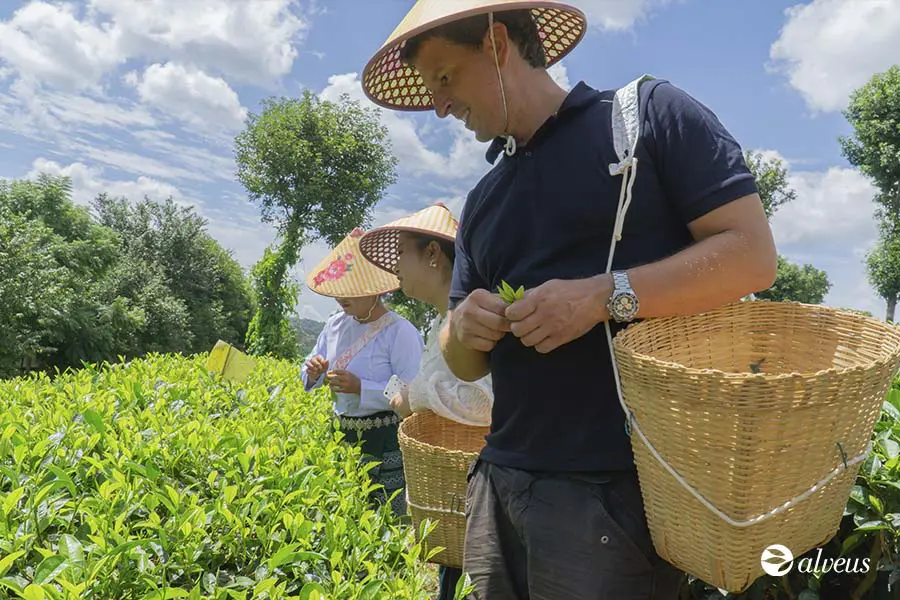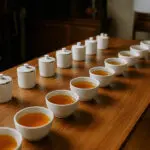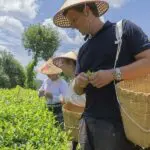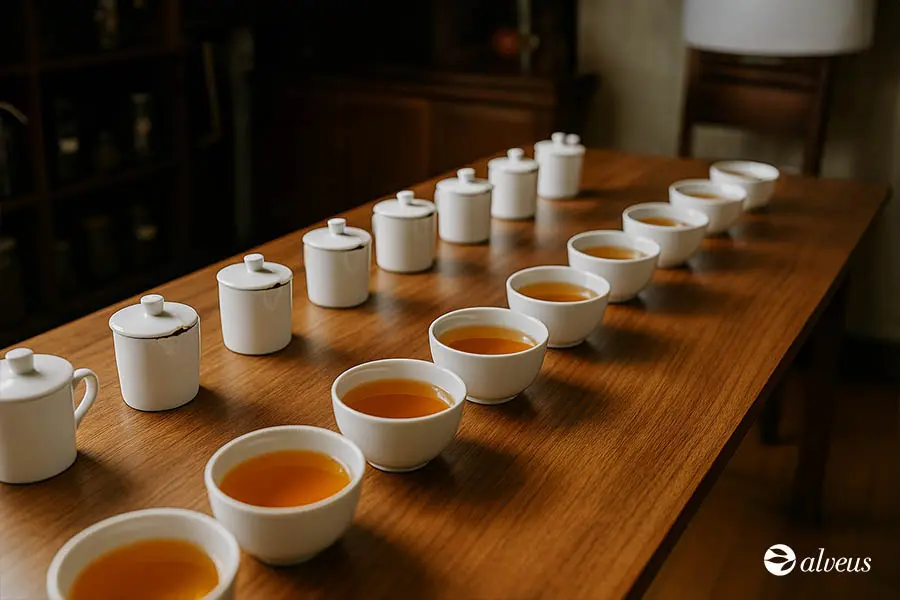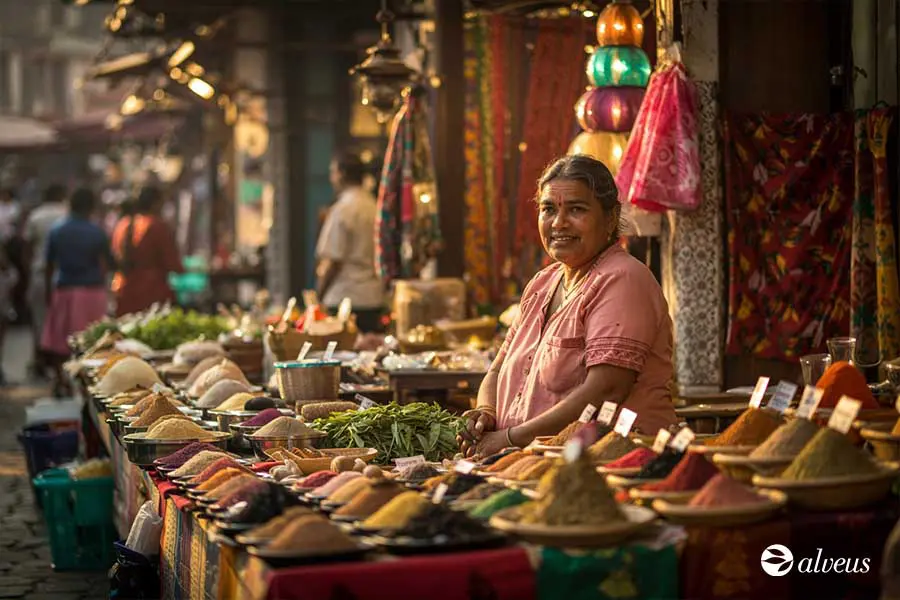In the world of tea, where tradition and innovation continually intertwine, Alveus has established itself as a market leader—not only for its exceptional quality, but also for its commitment to sustainability, customisation, and forward-thinking innovation. From its humble beginnings, the company has revolutionised the European tea market, becoming synonymous with excellence and a genuine passion for the art of tea.
Today, we have the privilege of sitting down with Daniel Trenk, the founder and driving force behind Alveus. In this interview, we gain insight into his vision for the future of tea, the challenges he faced while building the brand, and how Alveus has maintained its position at the forefront of such a competitive sector.
Join us on this journey through the history of Alveus, where you’ll get a first-hand look at the motivations and principles that have propelled the company to become Europe’s leading supplier of premium and organic teas.
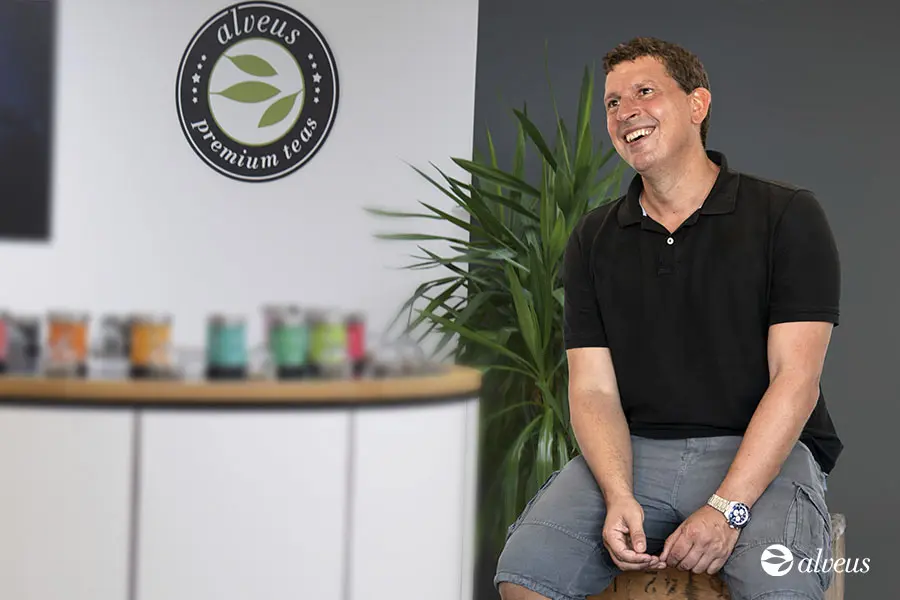
What inspired you to start Alveus, and how did the idea of revolutionising the tea industry come about?
I have always enjoyed drinking tea and spending hours browsing in tea shops. I was fascinated by the variety of aromas and products from almost every corner of the world. During particularly stressful periods of my studies, I realised how comforting a cup of tea could be, and the power found in the enjoyment of the individual ingredients.
As a student of international business administration, I began to take a closer look at this product and analyse the European tea market in more detail. I felt that more could be done with this wonderful product—more variety and creativity in blends, using more organic and higher-quality ingredients, and marketing this healthy and increasingly trendy product in a more modern and daring way.
Ultimately, I believed that a young, creative player willing to break new ground would bring fresh energy to the traditional tea trade. And so, the idea for Alveus was born.
On the road to success, what were the biggest challenges you faced, and how did you overcome them?
As a young company with limited financial resources and a small team, our first customers were initially sceptical about placing their trust in an unknown entity. A great deal of persuasion and enthusiasm was required at the outset. However, we listened to our customers and were willing to develop teas collaboratively, even for small orders. This flexibility was appreciated and helped us build strong relationships.
Our focus on organic products from the very beginning also gave us an edge, as this became increasingly important to our customers and was not a priority for many other wholesalers.
Another significant challenge was procurement. Building a network of suppliers was difficult, especially when starting with small order quantities. Again, persistence and persuasion were key.
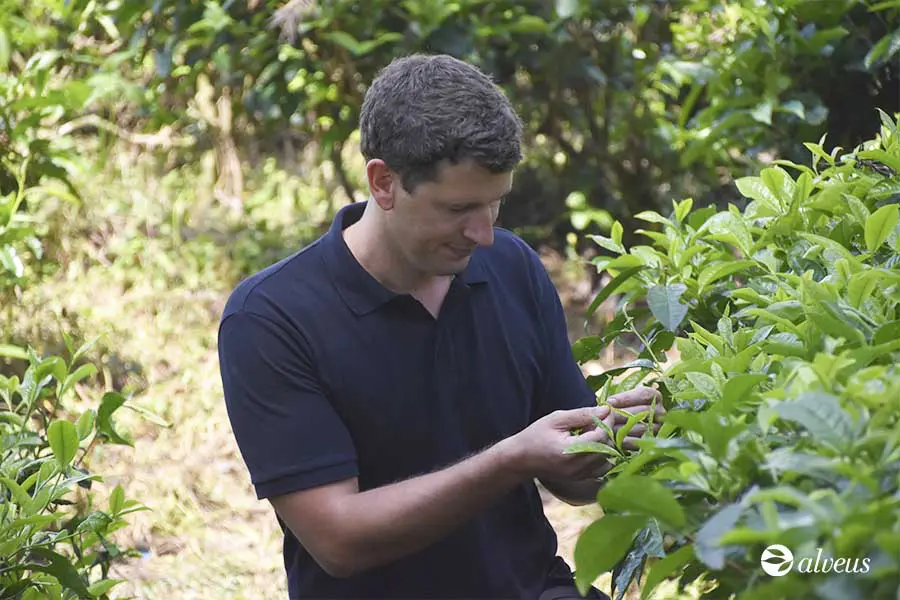
The tea market has changed significantly over the past few years. How have you observed this transformation, and how has Alveus adapted to these evolving trends?
The most notable change in recent years has been the growing emphasis on organic and health-conscious products. Tea, particularly organic tea, has become a lifestyle product, with consumers across Europe increasingly willing to pay a fair price for premium quality. This shift has worked in our favour.
Additionally, consumers now expect greater variety and innovation when visiting specialist stores. They want to be surprised by new and niche products, often accompanied by a compelling story. In response, we have focused on bringing an incredible number of new, trendy teas of premium quality to the market.
Alveus has been a pioneer in organic tea. Why do you think organic tea has gained so much popularity, and what role does sustainability play in Alveus’ vision?
Alongside the broader organic boom in Europe over the last two decades, the tea sector has seen an even more specialised trend. Tea lovers are a unique group who place a high value on health and sustainability. They often visit tea shops to buy something healthy and do something good for themselves.
For these consumers, organic certification and the avoidance of pesticides are non-negotiable. They also care deeply about the conditions under which the products are produced. Tea is an economical product—100g can yield an incredible number of cups. Increasingly, customers want to enjoy it with a clear conscience, even if it comes at a slightly higher cost.
At Alveus, we are committed to integrating more sustainable practices into our company vision.
The Alveus team is crucial to its success. How do you foster a company culture that promotes innovation and a passion for tea?
Launching numerous tea innovations each year requires collaboration across departments and nationalities. Developing new teas demands efficient communication, strong structures, and the ability to collect and bundle customer feedback effectively.
New teas often depend on the availability of raw materials, legal requirements, and consistent quality assurance. Logistics must also be seamless.
However, much of it comes down to ideas and creativity. To nurture this, we keep hierarchies flat and encourage talent, particularly those new to the industry who bring fresh perspectives and a passion for developing new recipes.
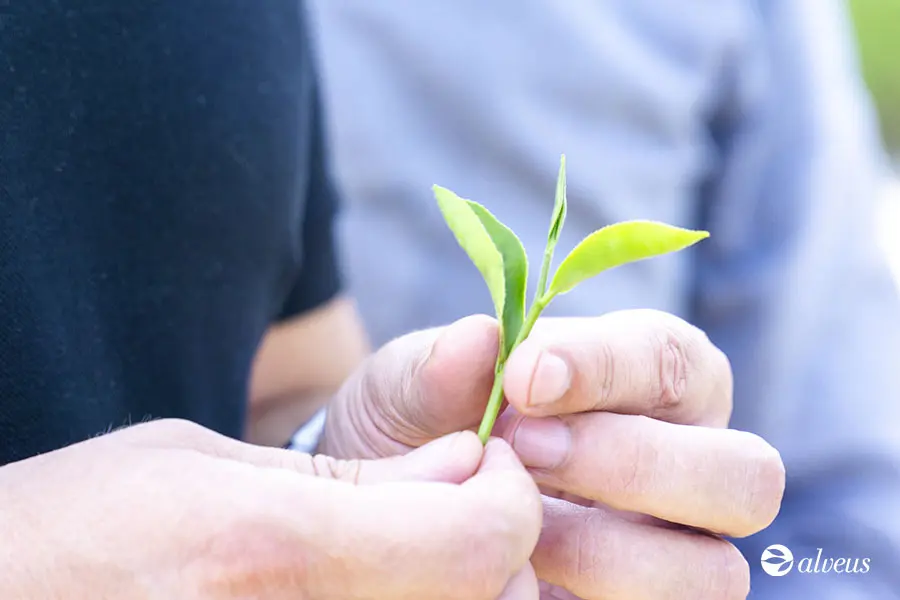
Currently, Alveus offers more than 1,500 varieties of tea. What’s the secret to maintaining such an extensive range while ensuring that every tea remains of premium quality?
The number of 1,500 pre-produced teas available for immediate delivery may seem excessive to some, but it has evolved and proven highly successful. With an export rate of over 85% and deliveries to more than 70 countries worldwide, variety is essential.
Every country or tea market has its own needs and traditions, and we strive to cater to as many as possible. This allows customers worldwide to try teas created for different regions, often with great success.
The challenge of producing for so many markets inspires us, and we take pride in developing teas that resonate across diverse cultures. Additionally, Alveus has grown to a size where we can blend large quantities of tea while ensuring freshness and quality.
Which trends in the tea market do you believe will dominate in the coming years?
Predicting trends is always challenging, but in the tea industry, changes tend to occur gradually. I believe many current trends will continue to evolve. Teas will become even healthier, with clear explanations of their benefits.
Consumers will increasingly seek niche products with compelling stories and transparency. They will want to know who produced the tea, under what conditions, and the motivation behind it. Is the tea a trendsetter? Does it come from an exotic location? Can purchasing it support a cause or provide a sense of doing good?
Transparency and trust will remain critical. Customers will want to know they can rely on their tea source and ask questions at any time.
For entrepreneurs in the tea sector reading this, what advice would you offer them to continue growing and standing out in the market?
This is a challenging question, but I’ll try to answer it.
I believe the most important thing is to have a clear answer to why you are different and what your unique selling point is in your market and region. Only then can you build a strong brand and command reasonable prices.
The tea market, like many others, is already well-served by good suppliers. However, we firmly believe that…
Additionally, digital expertise is a significant advantage. There are countless ways to market a good product with a compelling story and strong branding in today’s digital landscape.


